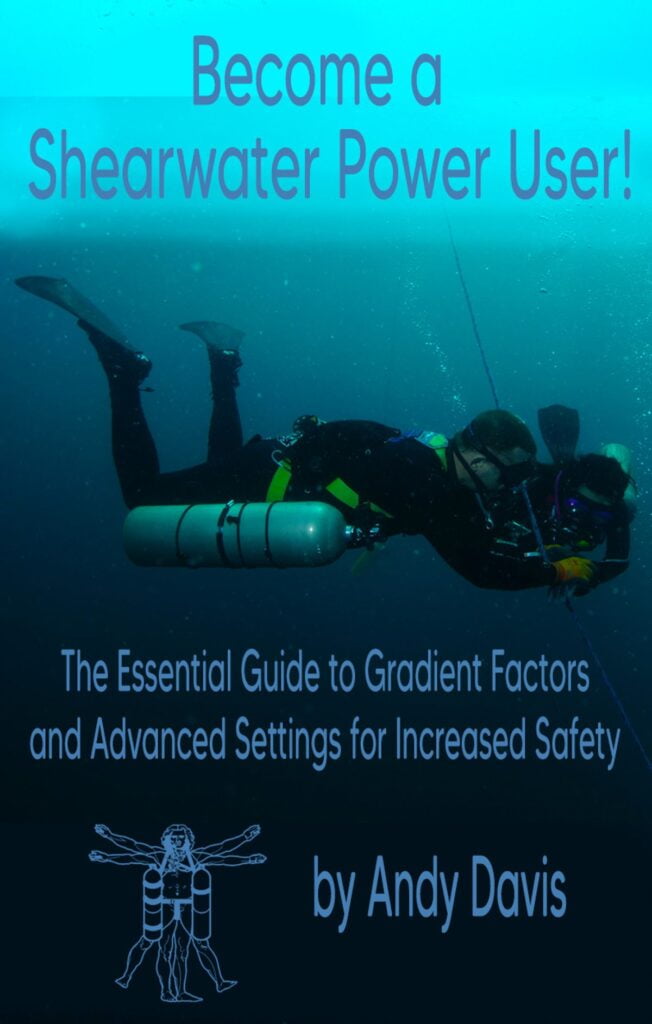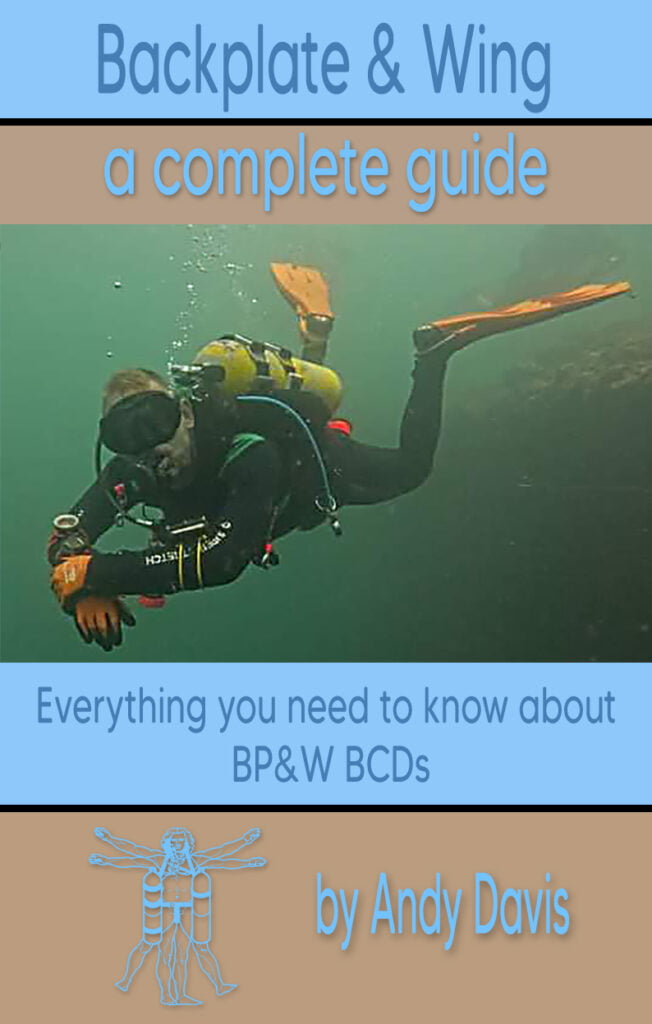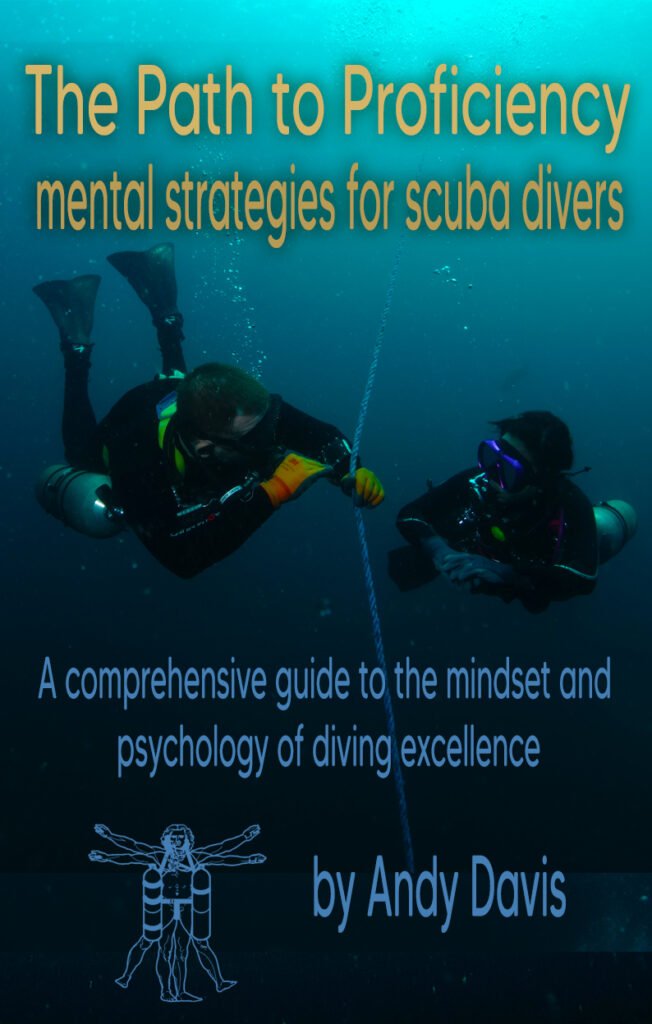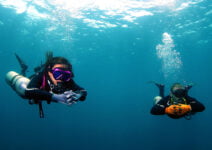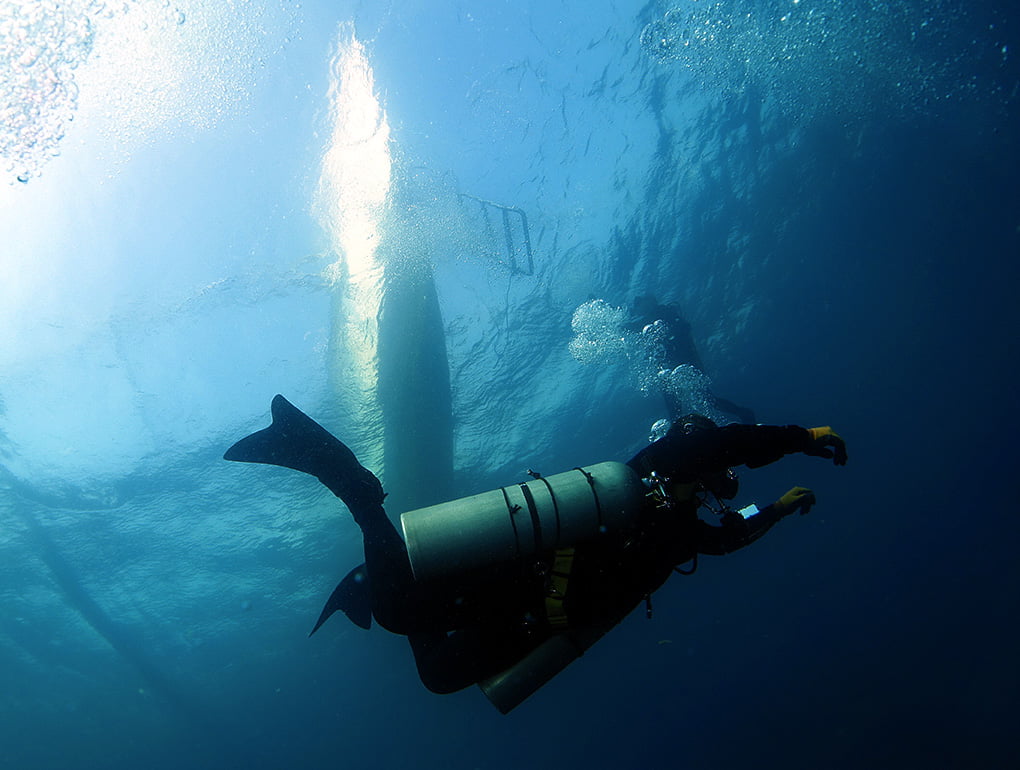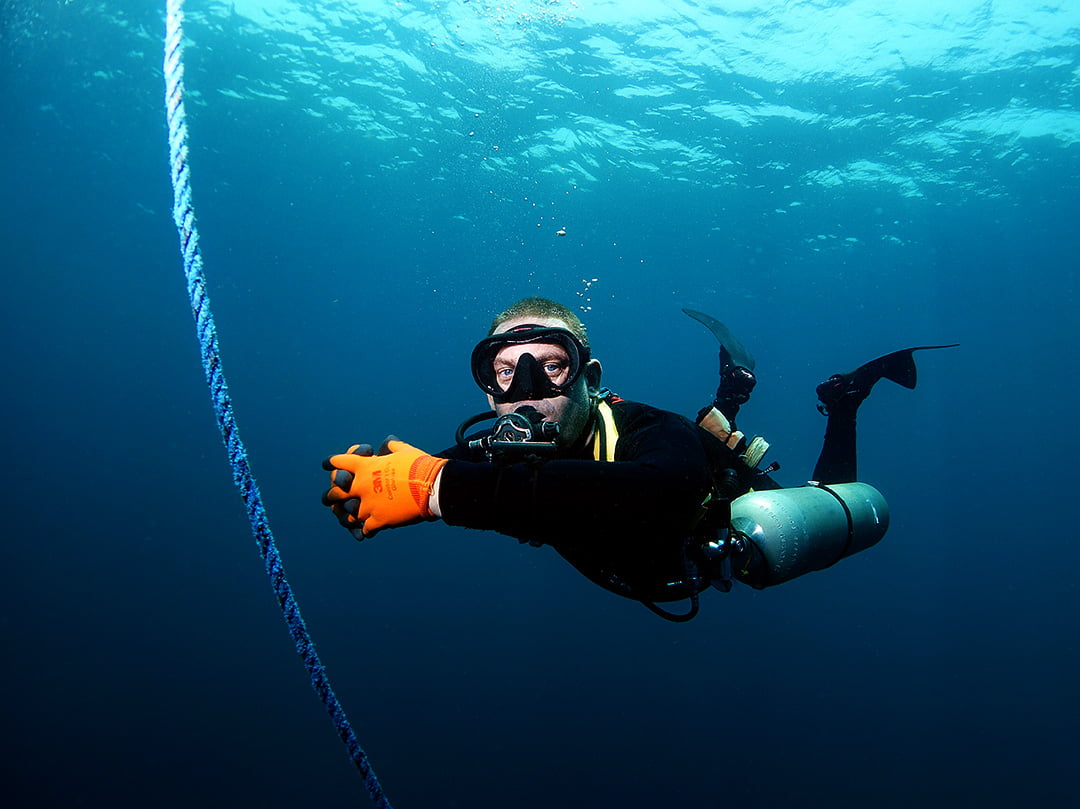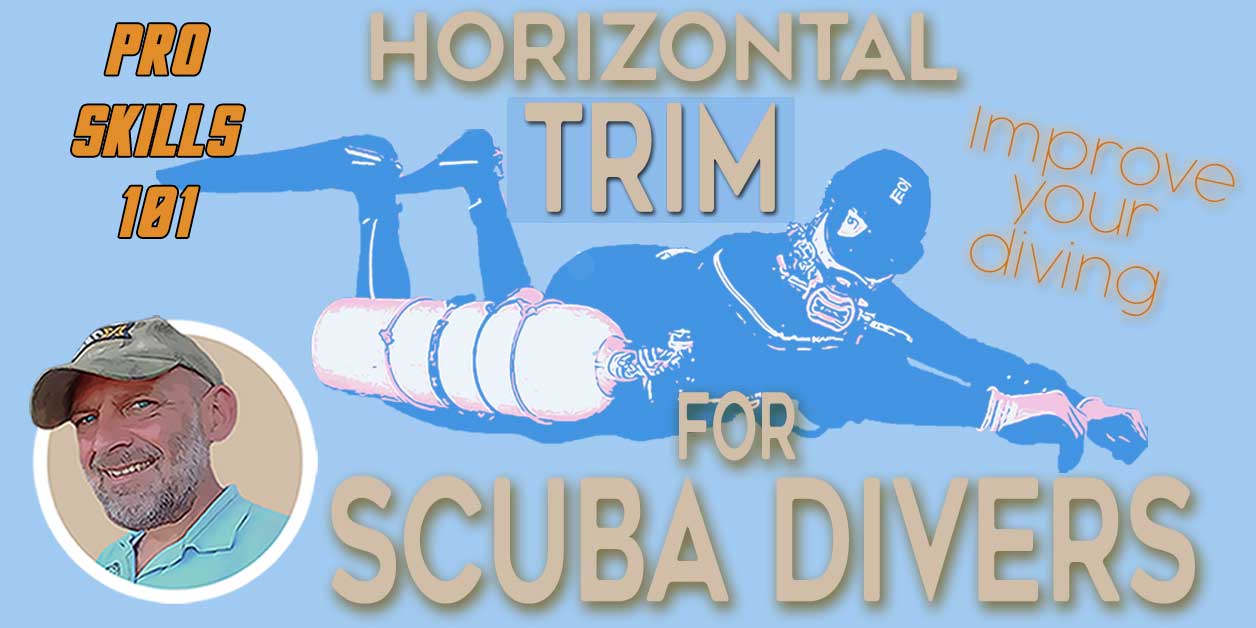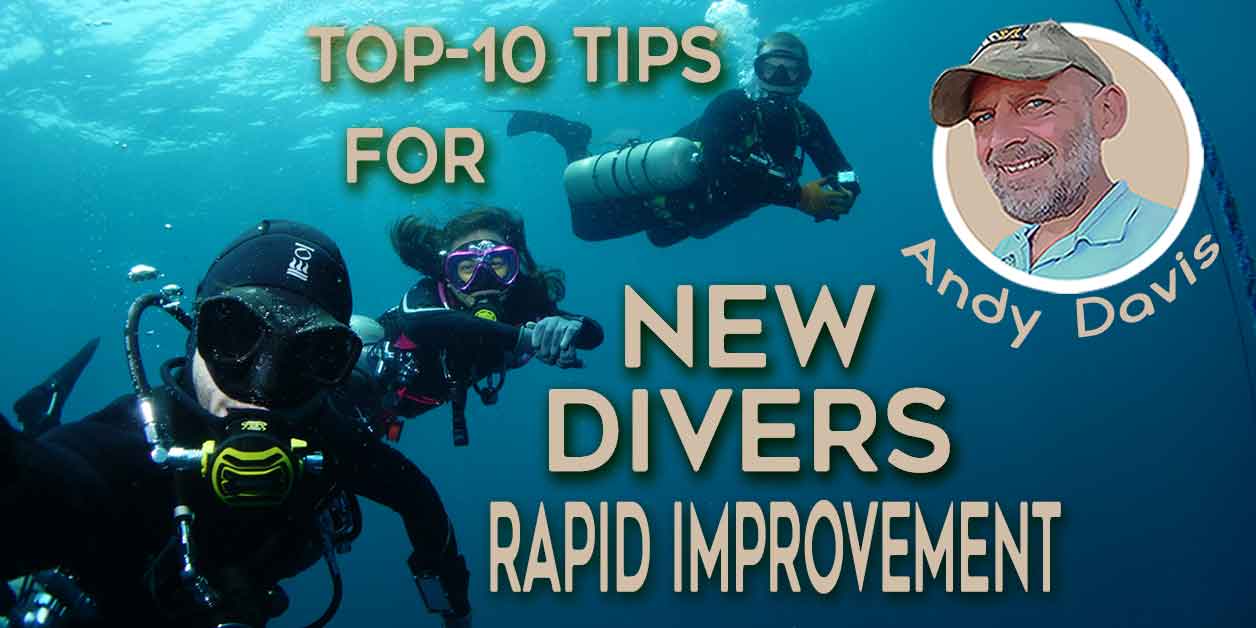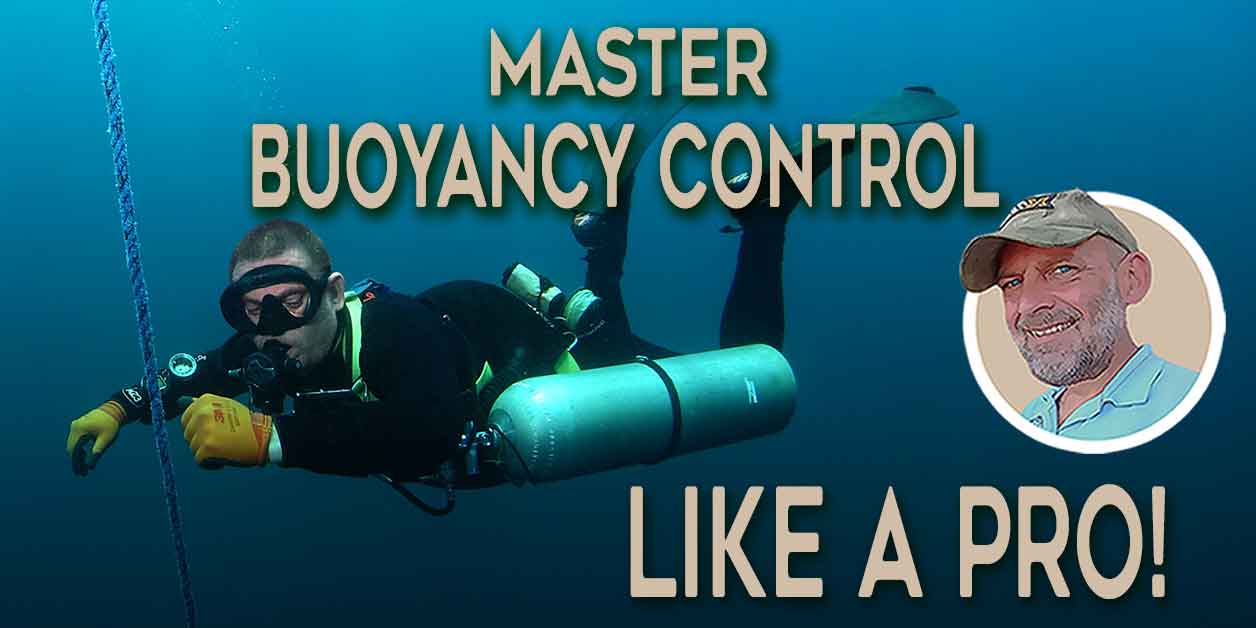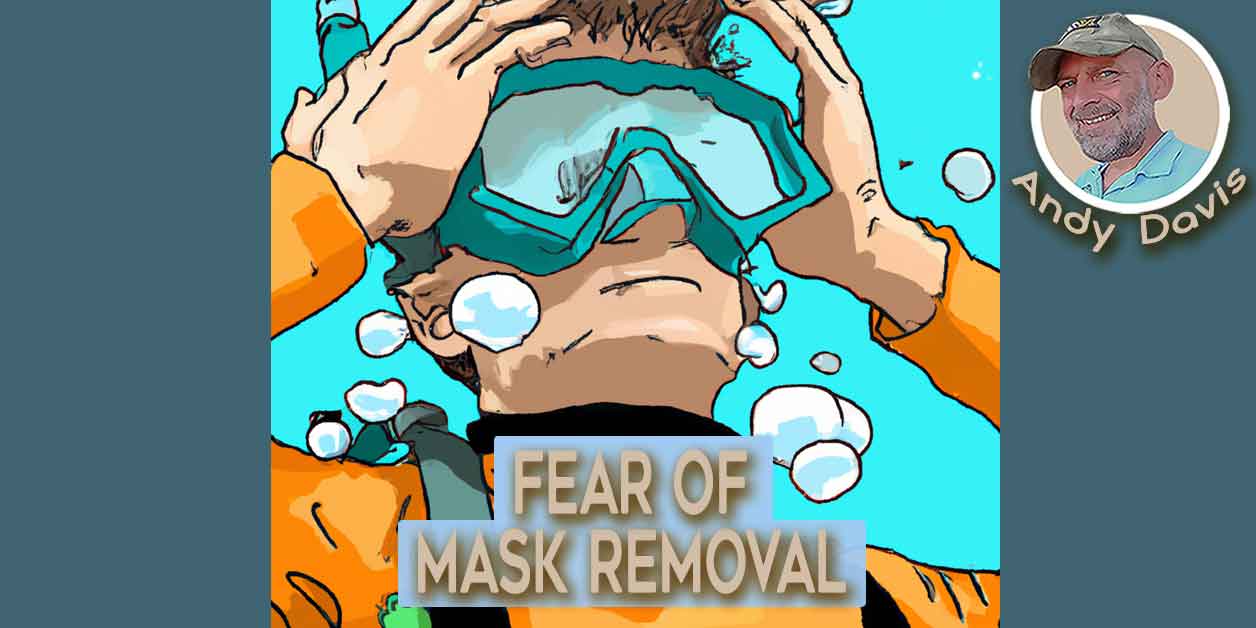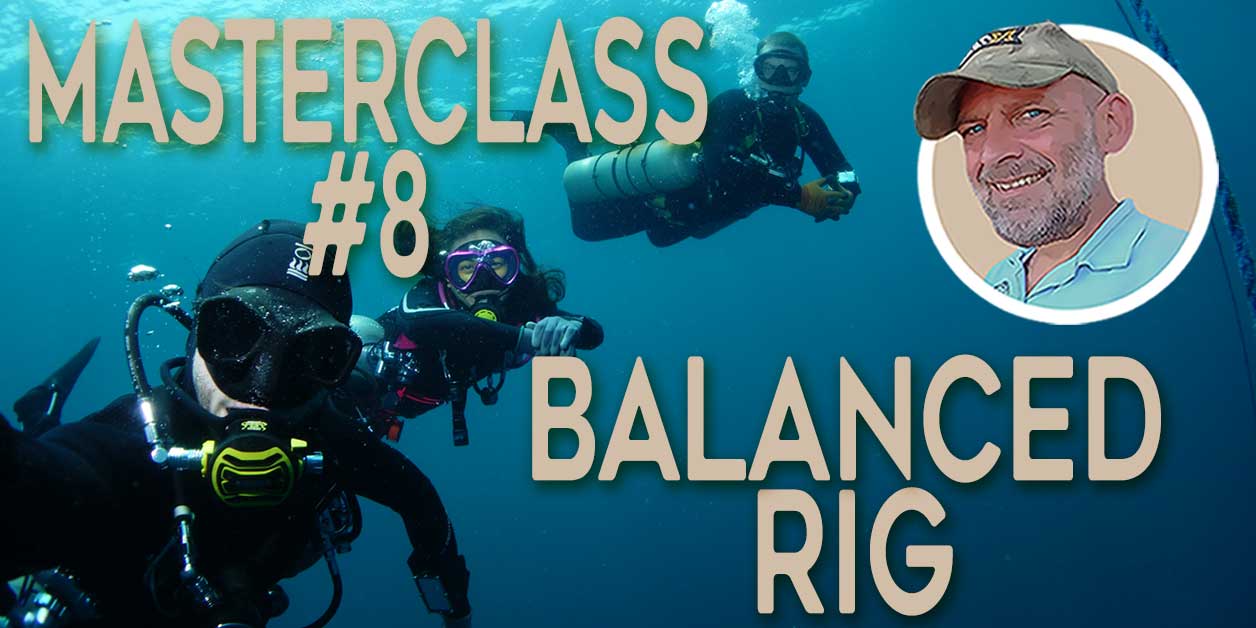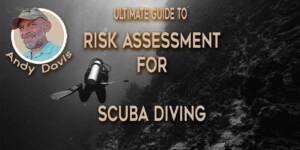How Can I Make My Air Last Longer When Scuba Diving?
Scuba diving is so much fun. However, it can be spoiled by the frustration of being responsible for dives ending prematurely when you are the first diver to run low on gas. As a result, you might be wondering “how can I make my air last longer when scuba diving?”
There are several factors that dictate air consumption when diving. Some of them you can’t change, like your lung volume, but there are things you can do to improve your respiration rate, reduce your workload, and manage your stress levels.
In this article, I will take a closer look at the factors influencing your air consumption. Also, I will offer some tips and techniques to help you reduce how much air you breathe and enjoy longer dives. So, if you’re eager to make your air last longer when diving, keep reading!
How to make your air last longer when scuba diving
To make your air last longer when scuba diving, the most important factor is to reduce exertion by improving core diving skill proficiency.
- Exertion is directly linked to your cardiovascular fitness, but can also be tackled as a separate issue.
- Reducing your workload reduces oxygen demand and decreases respiration rate, which in turn lowers gas consumption.
Here are the factors that dictate air consumption and ways to address them:
- Workload: Improving your proficiency in core diving skills reduces the amount of physical exertion that occurs during your dives. Less exertion allows a slower respiratory rate and makes your air last longer.
- Lung volume: This is something you cannot change. Different people have different vital lung capacities, and body size also has a direct impact.
- Respiration rate: Your rate of breathing is primarily determined by CO2 levels in your body. Good breathing habits help – developing a natural, but deep (stomach) breathing pattern helps flush CO2 from the lungs and lowers respiration demand.
- Depth: Air consumption varies with depth. The deeper you go, the more gas you use from your cylinder. Dive shallow to extend your gas duration.
- Cylinder capacity: The larger the gas supply, the longer it will last. Choosing a larger capacity and/or higher pressure cylinder can compensate for higher gas consumption. You could also use multiple cylinders to dramatically increase your gas supply.
- Cardiovascular fitness: Improving your physical fitness means you can endure more workload with less increase in your respiration rate.
- Stress: Tension and anxiety increase respiration, which raises your air consumption. As a diver gains experience, they grow more comfortable and this leads to less air consumption.
Put simply, improving skill proficiency to reduce exertion is the most important factor to make your air last longer when scuba diving.
To reduce exertion and prolong air supply, you can improve your buoyancy, trim, streamlining, and finning techniques, as well as dive at a slower pace.
A relaxed ‘frog kick’ method can also help.
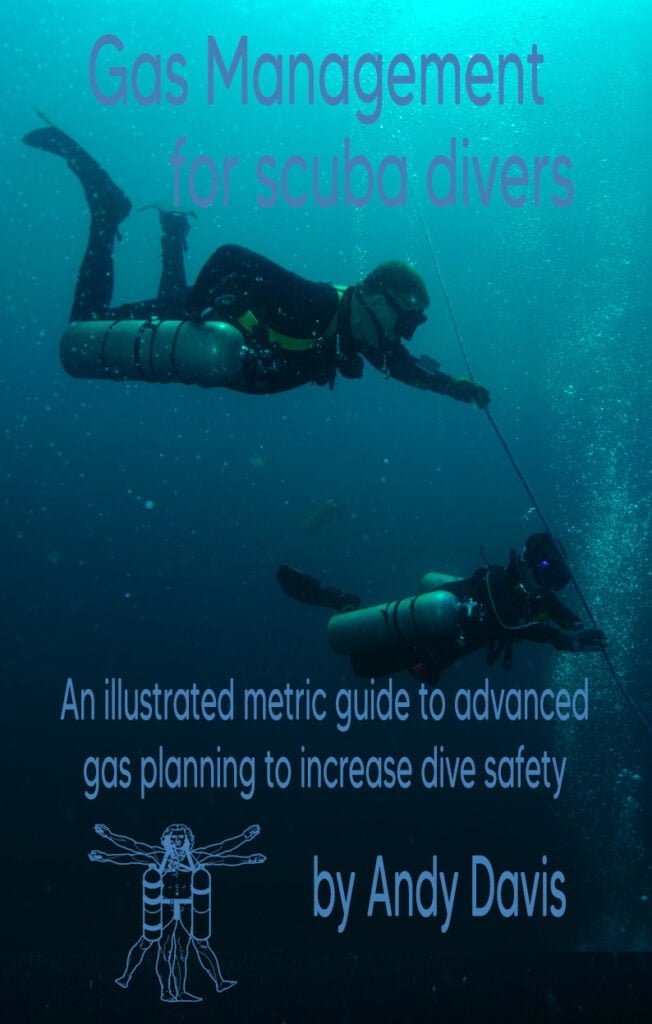
My detailed guide to Gas Management For Scuba Divers is now available as an illustrated, printable PDF ebook for download!
Factors that make your air last longer when scuba diving
If you’re looking to extend your diving time, it’s important to understand what affects your air consumption. In this section we’ll go through each of these factors in order of their ability to make your air last longer when scuba diving.
Exertion: Reducing your workload
When scuba divers consider exertion on their dives, the first solution that often springs to mind is to increase cardiovascular fitness. However, that addresses the symptoms, not the root cause.
For that reason, the best way to make your air last longer when scuba diving is to reduce the amount of exertion when diving. As your skill proficiency increases, you will conduct dives with more efficiency and less physical effort.
Reducing your muscular workload reduces oxygen demand and decreases respiration rate. In turn, this lowers gas consumption.
You can significantly decrease your workload by achieving better buoyancy control, horizontal trim, streamlining, and finning at a slower pace.
Additionally, you should understand that increased speed causes a disproportionate increase in water resistance. In turn, that leads to a dramatic increase in workload.
Finally, the traditional diving flutter kick can be inefficient, requiring more exertion to travel a given distance. Instead, you should consider developing alternative finning methods, such as a relaxed ‘frog kick’ that employs a graceful ‘kick-and-glide’ motion.
Depth
Air consumption varies with depth. The deeper you go, the more gas you use from your cylinder. This is because the density of air you breathe is proportionally linked to the ambient pressure surrounding you.
For example, at 10m (2ata) you consume double the gas, per breath, that you would do at the surface. Dive shallow to extend your gas duration.
If you understand scuba diving gas management techniques, then you can calculate your gas consumption rate and determine how long the gas in your cylinder will last at a planned depth.
This can help you ensure that you pick realistic depths for the length of dive that you want to enjoy. Alternatively, it gives you knowledge of how long you can stay at the depth you plan to reach.
If the gas volume in your cylinder is constantly the limiting factor on your dives, you can consider a bigger cylinder, or even carrying two cylinders.
Cylinder capacity
The larger the gas supply, the longer it will last.
- Choosing a larger capacity and/or higher pressure cylinder can compensate for higher gas consumption.
- Modern options like sidemount diving offer recreational divers access to much larger gas supplies by carrying two cylinders.
Respiration rate
Your rate of breathing (time to inhale/exhale) is determined by the level of CO2 inside your body. When the CO2 level becomes high, you will experience an increasing urge to breathe. To keep your respiration rate low, you have to avoid CO2 build-up inside your body.
- Breathe deeply and slowly. A slow and deep breathing pattern more efficiently flushes CO2 from your body.
- Reduce exertion. Reducing physical workload reduces CO2 production in your body.
- Lower gas density. Higher gas density at deeper depths reduces CO2 removal from the body. Consider using trimix (helium-enriched) gas below 31m (101ft) to stay within DAN recommended gas density limits.
Stress: Tension versus relaxation
Your psychological state is just as important as physiological factors. Tension and anxiety cause increased respiration and higher air consumption.
As a diver gains experience, they grow more comfortable and this leads to less air consumption. This is a factor that improves with time, but can also be improved by diving well within your comfort zone.
One of the major causes of tension in divers with poor air consumption is stressing about their air consumption.
- Scuba divers can worry about being a ‘gas guzzler’ and being the reason their group has to ascend early from their dive.
- This stressor causes a spiral that further increases their gas consumption rate.
One of the best improvements I made to my gas consumption, as a novice diver, was when I just quit worrying about it and accepted it for what it was. All of a sudden, I noticed my air lasted longer when scuba diving.
Cardio-vascular fitness
The body metabolizes oxygen more or less efficiently depending on your cardiovascular fitness. This becomes more significant as your workload increases.
Improving your physical fitness means you can dive at harder levels of workload, with less increase in your respiration rate.
It is important to note that improving cardio-vascular fitness only makes a significant difference to making air last longer when scuba diving if you are under physical exertion. If you are relaxed and using low amounts of energy, cardio-vascular fitness does little to make your air last longer when scuba diving.
Lung volume
This is something you cannot change.
- The physical size of your lungs dictates how much air is consumed with each breath that you take.
- Divers have different lung sizes.
- However, in general, women tend to be better than men.
- Additionally, body size (frame, not BMI) can also be an indication of lung size.
You have to live with these physiological traits.
How to make your air last longer when scuba diving
Scuba diving is a thrilling experience that can be enjoyed to the fullest by extending your air supply. To do this, honing your core diving skills is crucial in reducing your workload.
However, several other factors can also affect your air consumption including;
- Lung volume
- Respiration rate
- Depth
- Cylinder capacity
- Cardiovascular fitness
- Stress levels.
Want to extend and make your air last longer when scuba diving? Decrease your physical workload by improving your buoyancy control, horizontal trim, streamlining, and finning techniques. You can also dive at a slower pace to reduce air consumption.
In conclusion, to make your air last longer when scuba diving, follow these tips:
- Improve your core diving skills to reduce your workload
- Develop better buoyancy control, horizontal trim, streamlining, and finning techniques
- Dive at a slower pace
- Dive shallower
- Choose a larger capacity or higher pressure cylinder to compensate for higher gas consumption
- Maintain good breathing habits
- Manage stress levels
By taking these factors into consideration, you’ll be able to make the most of your air supply and enjoy longer more fulfilling diving.
Learn More To Become a Skillful Diver!

My detailed guide to Gas Management For Scuba Divers is now available as an illustrated, printable PDF ebook for download!
About The Author

Andy Davis is a RAID, PADI TecRec, ANDI, BSAC, and SSI-qualified independent technical diving instructor who specializes in teaching sidemount, trimix, and advanced wreck diving courses.
Currently residing in Subic Bay, Philippines; he has amassed more than 10,000 open-circuit and CCR dives over three decades of challenging diving across the globe.
Andy has published numerous diving magazine articles and designed advanced certification courses for several dive training agencies, He regularly tests and reviews new dive gear for scuba equipment manufacturers. Andy is currently writing a series of advanced diving books and creating a range of tech diving clothing and accessories.
Prior to becoming a professional technical diving educator in 2006, Andy was a commissioned officer in the Royal Air Force and has served in Iraq, Afghanistan, Belize, and Cyprus.
In 2023, Andy was named in the “Who’s Who of Sidemount” list by GUE InDepth Magazine.
Purchase my exclusive diving ebooks!
Gas consumption FAQs
The main reason for high air consumption when diving is avoidable physical exertion from inefficient technique. Improve your core scuba diving skills to increase efficiency and reduce your physical workload on dives.
1. Workload (physical exertion)
2. Lung volume
3. Respiratory rate
4. Depth and gas density
5. Cylinder capacity
6. Cardiovascular fitness
7. Stress
The most effective way to improve gas consumption when scuba diving is to improve your fundamental diving skills; buoyancy control, horizontal trim, and efficient propulsion techniques. This improves efficiency and reduces muscular exertion; meaning you will breathe less gas.
Increasing depth also increases the pressure surrounding the diver. Your scuba regulator delivers breathing gas to match that pressure. Because gas density increases with pressure, you will consume a higher volume of gas from your cylinder as you breathe.
Originally posted 2019-02-22 11:49:08.


